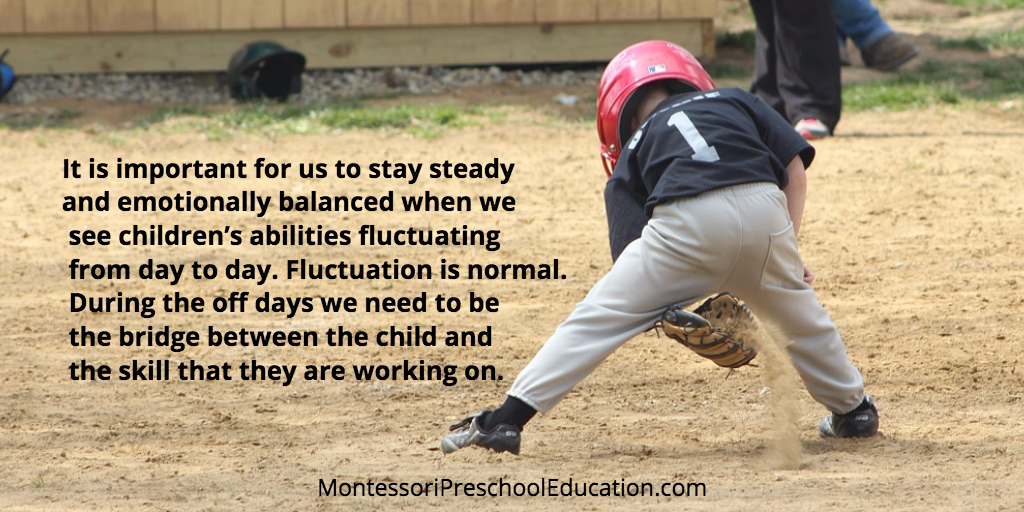It’s Normal For Your Kids To Strike Out……
Have you ever watched someone who is learning to hit a baseball? They strike out more times than they hit the ball, and in the beginning, if they hit the ball it is usually luck more than skill. Rarely would anyone see a beginner in a lucky moment and think that they know how to hit a ball perfectly every time from that point on, but we use this illogical thought process with children. I’ve heard many times teachers and parents say emphatically “But I saw them do it!” referring to following a rule or an independence skill. We can get so focused on wanting children to ‘behave’ and perform that we get militant in our expectations and lose perspective on their learning process.
To continue the baseball analogy, as someone practices they will hit the ball more and more, still striking out in-between, and eventually they will hit the ball most of the time, but even professions strike out every once in awhile. So it is important not to expect perfection when we are starting to see progress. This is important to remember from toilet learning, to reading, to learning to follow directions, to speaking instead of hitting, and so on. Some days, kids will be on and some days they will be off. It is important for us to stay steady and emotionally balanced when we see children’s abilities fluctuating from day to day. Fluctuation is normal. During the off days we need to be the bridge between the child and the skill that they are working on.
Many things can cause us (all of us!) to have off days. If we are tired, hungry, attention hungry, have a cold, are out of routine, missing someone, all of these things can cause us to have bad days. There really is endless opportunities! So for children they may need gentle and firm reinforcement of boundaries, encouragement, and verbal understanding. Verbal understanding may sound something like:
“Some days it’s harder for us to do well. That happens to everybody. I will make sure to help you today. I know you’ll have better days”.
That is understanding, encouragement, and boundaries in one sentence! It is almost magical to see a child respond with acknowledgement and relief. To be clear, you are not letting them off the hook or condoning bad behavior when you say something like this. You are showing your understanding. If you need to you can also add “but I won’t let you…..” to make sure your expectations of their behavior are known. This is much more effective than yelling and is an example of how to gracefully address wrongdoing.
We all need understanding and grace. If we can give it to our children, they will learn to give it to others. Nobody is on their “A” game everyday.
